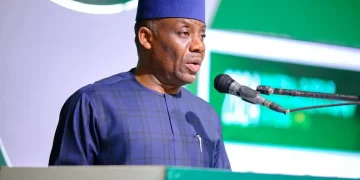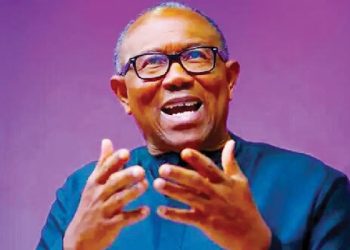MINNA, Niger State – The Niger State Government has implemented a new policy requiring religious preachers to submit their sermons for government approval before public delivery, Governor Umar Bago announced during a television interview on TVC’s Politics on Sunday.
The controversial measure requires all religious leaders to present their planned sermons to state authorities for review before conducting public worship services, with the governor defending the policy as necessary for public safety and security.
“I didn’t ban evangelism,” Governor Bago clarified during the interview. “For everyone going to sermon on Friday, he should bring his scriptures for review, and it’s normal. Even in Saudi Arabia, this is done.”
Security Agencies to Monitor Religious Activities
The governor explained that the policy aims to prevent the spread of messages deemed harmful to citizens or the government. Multiple security agencies will collaborate in monitoring religious activities across the state.
“We cannot say because you have been given the opportunity to be a cleric, you will go out and preach the gospel that is anti-people, anti-government and you think it’s normal,” Bago stated.
According to the governor, the Department of State Services (DSS), Nigeria Police Force, Nigeria Security and Civil Defence Corps (NSCDC), and military personnel will work together to oversee the implementation of the policy.
“We want to be able to see what they are preaching, hear what they are saying. We are working together with security agencies,” he added.
Two-Month Deadline for Preacher Registration
The state government has also introduced mandatory licensing for religious preachers, with a two-month application deadline currently in effect. Umar Farooq, head of Niger State Religious Affairs, announced the licensing requirement earlier this month.
“It is true, the State Government has banned preaching. Any preacher who wants to preach must secure a licence between now and the next two months,” Farooq stated.
The licensing process requires prospective preachers to visit the state religious affairs office, complete application forms, and appear before a screening panel before receiving authorization to conduct public religious activities.
“All they need to do is to visit our office, get, and fill out the form. After which, they will have to face a panel that will screen them before they can start preaching,” Farooq explained.
The policy has sparked discussions about religious freedom and government oversight of religious activities in Nigeria, where constitutional provisions guarantee freedom of religion and worship.

Folami David is a dynamic journalist who views the world through an analytical lens, translating complex narratives across multiple industries into compelling stories. With an insatiable appetite for information and a keen eye for emerging trends, Folami specializes in uncovering the interconnections between technology, business, culture, and society.

















